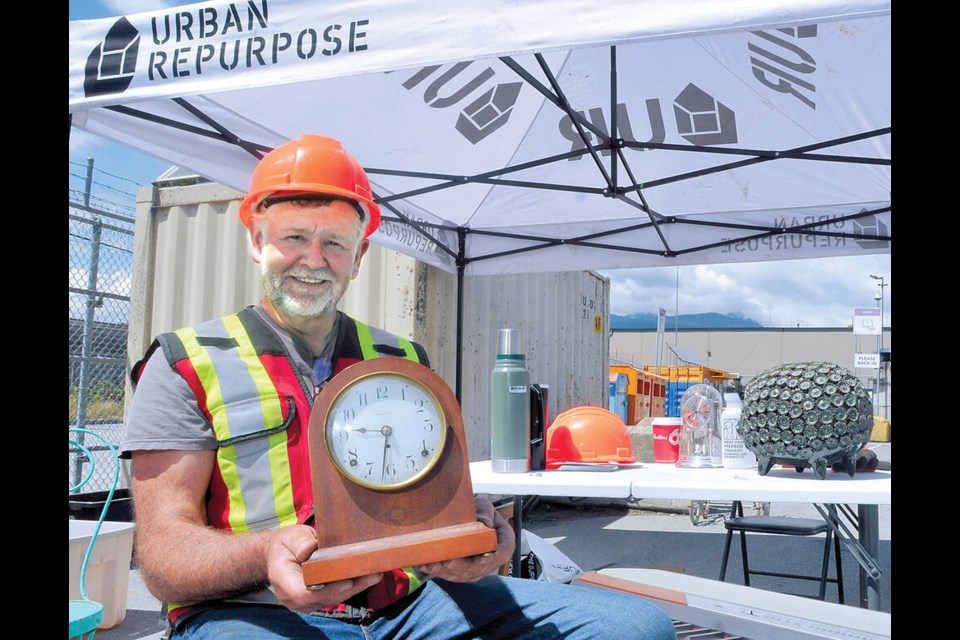You wouldn’t believe the good stuff some people throw away. .
The founder of the North Â鶹´«Ã½Ó³» of usable items and materials and found new homes for them, just moments before they were sent to a landfill until the end of time.
For years, Urban Repurpose has been accepting donations and clearing out estates to stock the Brooksbank Avenue store, which is the only social enterprise that does waste diversion simply for waste diversion’s sake.
But now Riessner is taking the show on the road, posting up at the North Shore Recycling & Waste Centre and catching people before it’s too late.
“The goal when I started this thing was to try to keep as much material out of landfill as possible and at the transfer station. It’s just a constant stream of stuff,” he said. “It is the best way I can see moving forward to get the maximum amount of material out of the waste stream and back into the community for reuse.”
It takes a certain level of connoisseurship to know what’s worth salvaging and what’s best sent to the dump, but Riessner and his staff are averaging about 1,000 kilograms per day during their two days per week at the transfer station.
Some of the more interesting items they’ve collected include antique telephones, barber’s chairs, original artwork, cast iron frying pans from the 1800s and a century-old accordion in immaculate condition.
“Furniture and home decor and housewares – you name it. Anything that you can think that people take to the dump,” he said. “For me, that really sticks in my craw. I don’t like waste for no reason at all.”
The choicest items end up for sale in Urban Repurpose store, which is what funds the non-profit, but most of the stuff saved from the landfill is given away for free outside the store on Sundays.
“By the end of the day, most of it if not all of it is gone,” Riessner said.
Founder wants to extend initiative to all Metro Â鶹´«Ã½Ó³»transfer stations
Riessner said the response from folks coming to the dump has been “incredibly positive.” Most people admit they were throwing away the usable stuff simply because they “don’t know where else to take it.”
“Usually the first comment is, ‘Why haven’t they done this years ago?” he said.
The proof of concept is now firm, but Riessner sees expanding the initiative to all of Metro Vancouver’s transfer stations. That could go from diverting thousands of tonnes per year to hundreds of thousands of tonnes. The tricky part, always, is getting connected with the market of users who are ready to put the items to reuse, either non-profits, for-profits or makers who know best how to give old items new life.
Riessner said he also hopes people come away with a different perspective on their own consumption habits, which trend toward goods that are cheap and designed to wear out or break after just a few years.
“We have a real problem with waste and where to put it,” he said. “I think people have a great power in the way they shop, to a set change both to the community and to the environment.”
Currently, Riessner and his staff are at the transfer station on Fridays and Saturdays but he is hoping to expand their hours this summer.

